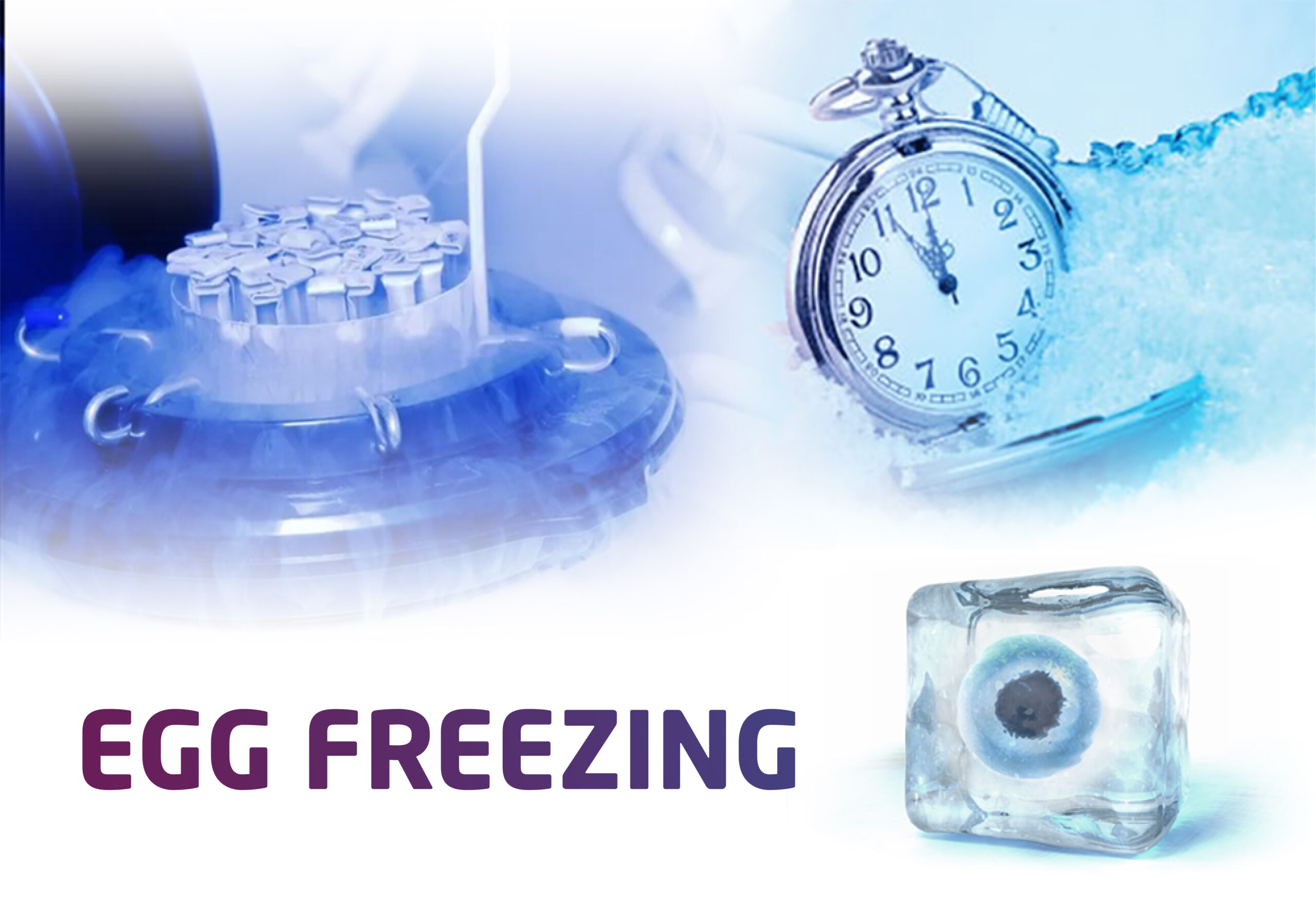Exploring Egg Freezing: A Comprehensive Guide
Introduction:
Oocyte cryopreservation, often referred to as egg freezing, has been a groundbreaking approach for preserving women’s fertility. Such a procedure might be beneficial for anyone intending to delay childbearing for private, medicine, and work-related factors. This paper describes everything there is to know about egg freezing: how it is done, when is the most optimal time, how it is implemented as a pregnancy avoidance unit, and which sorts of people might consider this approach to preserve fertile potential.
Must Read: Benefits of Choosing Day 5 for Embryo Transfer
Understanding Egg Freezing:
Egg freezing describes the extraction of a woman’s eggs, which are then frozen for later usage. Following the stimulation of the ovaries, ultrasound identifies several egg follicles growing in the ovaries. This is accomplished by the administration of hormones inserted into the woman’s ovaries. Egg retrieval is done in a minimally invasive approach known as transvaginal ultrasound aspiration when the eggs are believed to be mature. The levels of 1H and hormone tests to confirm the maturity of the eggs are tracked by conducting ultrasounds.
The eggs are then carefully frozen using a method known as vitrification. During vitrification, the eggs are quickly cooled to very low temperatures, which keeps them alive but not moving. Next, the eggs are put in special tanks that keep things very cold until they are ready to be used.
Timing Considerations:
Fixing the right time at which the egg freezing process can be done is a very critical part of the process. Though there is no one correct answer, several factors may influence their choice or decision. Women that ponder egg freezing should take into account their age and experience in terms of reproduction, personality, and timing of having children in the near future. As much as possible, egg freezing should be done at young age, when a woman is in her 20s or early 30s . The reason is that a woman’s fertility decreases with age, and her eggs’ quality and quantity are also reduced. Therefore, by freezing those eggs at a younger age, women can retain their ability to have children, hence better planning for their families.
Preventative Benefits:
Egg freezing has appoint from a health perspective in that it includes the preservation of people’s fertility. One of the advantages is that it may be essential for those individuals who are about to undergo treatment or procedures that may damage their eggs . For example, women with cancer who will be treated with chemotherapy or radiation treatment might choose to freeze their eggs before their cycles or periods are affected to take control of their fertility. Additionally, some women opt to freeze the eggs to ensure when they will have children; at this time their periods will not and they have high fertility levels.
Who Should Consider Egg Freezing?
There are many types of women who can freeze their eggs and keep their fertility. In the following situations, freezing eggs may be a good idea:
- Women pursuing higher education or career advancement who wish to delay childbearing until later in life.
- Individuals facing medical treatments or procedures that may affect their fertility, such as cancer treatment.
- Women who have not yet found a suitable partner but wish to preserve their fertility for future family building.
- Individuals with a family history of early menopause or infertility who wish to proactively preserve their fertility.
In the end, freezing your eggs is a very personal choice that should only be made after talking to a reproductive endocrinologist or fertility specialist. These professionals can give each woman specific advice based on her specific situation and fertility goals.
Choosing the Best Egg Freezing Center:
To get the best care and results, it’s important to think about a few key things when choosing the best egg freezing center. First, look into well-known centers that specialize in fertility preservation. Choose centers that have a history of success and good patient reviews. Look for centers that have cutting-edge technology and fertility doctors who have a lot of experience and are good at freezing eggs. Also, think about things like the center’s location, how easy it is to get to, and its amenities to make sure you have a comfortable and easy time. You can learn a lot about the center’s care and support by reading reviews and testimonials from people who have been there before. The best egg freezing center in Delhi or The best egg freezing centers in India, put patient safety, personalized care, and success rates at the top of their list of priorities. This makes them the best choice for people who want to keep their fertility. People looking for the best hospital for egg freezing should put things like expertise, technology, and patient-centered care at the top of their list. This will help them have a rewarding and successful egg freezing journey.
Conclusion:
Egg freezing is a huge step forward in reproductive technology because it lets women keep their fertility and decide for themselves how they will have children in the future. By learning about how egg freezing works, the best time to do it, how it can help prevent pregnancy, and who should think about this option, women can make smart choices about how to preserve their fertility. By freezing eggs, women can make the dream of having a family come true, allowing them to pursue their life goals while also protecting their fertility options for the future.
